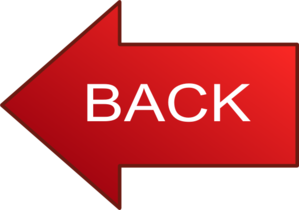Technical Editor Resume Sample
Technical Editor Resume Sample Bullet Points
- Plan, coordinate, or edit content of material for publication.
- Review proposals and drafts for possible publication.
- Prepare, rewrite and edit copy to improve readability, or supervise others who do this work.
- Verify facts, dates, and statistics, using standard reference sources.
- Read copy or proof to detect and correct errors in spelling, punctuation, and syntax.
- Develop story or content ideas, considering reader or audience appeal.
- Review and approve proofs submitted by composing room prior to publication production.
- Supervise and coordinate work of reporters and other editors.
- Plan the contents of publications according to the publication's style, editorial policy, and publishing requirements.
- Read, evaluate and edit manuscripts or other materials submitted for publication and confer with authors regarding changes in content, style or organization, or publication.
- Allocate print space for story text, photos, and illustrations according to space parameters and copy significance, using knowledge of layout principles.
- Oversee publication production, including artwork, layout, computer typesetting, and printing, ensuring adherence to deadlines and budget requirements.
- Make manuscript acceptance or revision recommendations to the publisher.
- Assign topics, events and stories to individual writers or reporters for coverage.
- Confer with management and editorial staff members regarding placement and emphasis of developing news stories.
- Meet frequently with artists, typesetters, layout personnel, marketing directors, and production managers to discuss projects and resolve problems.
- Monitor news-gathering operations to ensure utilization of all news sources, such as press releases, telephone contacts, radio, television, wire services, and other reporters.
Technical Editor Resume Sample Keywords and Simple Resume Phrases
- Evaluating information to determine compliance with standards
- Judging the qualities of things, services, or people
- Organizing, planning, and prioritizing work
- Establishing and maintaining interpersonal relationships
- Documenting and recording information
- Communicating with supervisors, peers, or subordinates
- Communicating with persons outside organization
- Decision making, creative thinking and problem solving
- Updating and using relevant knowledge
- Identifying objects, actions, and events
- Interpreting the meaning of information for others
- Processing information
- Analyzing data or information
- Interacting with computers
- Scheduling work and activities
- Coordinating the work and activities of others
- Direct and coordinate activities of workers or staff
- Set page layout or composition
- Communicate visually or verbally
- Consult with managerial or supervisory personnel
- Interpret information to formulate story ideas
- Organize story elements
- Organize journalistic or literary data
- Proofread printed or written material
- Use computers to enter, access or retrieve data
- Conduct or attend staff meetings
- Follow copyright laws
- Schedule work to meet deadlines
- Read production layouts
- Ensure correct grammar, punctuation, or spelling
- Calculate headline size or count
- Identify interests of publication readers
- Oversee execution of organizational or program policies
- Index information resources
- Use word processing or desktop publishing software
- Write headlines
- Verify investigative information
- Approve product design or changes
- Verify sources or documentation for stories
- Coordinate production materials, activities or processes
